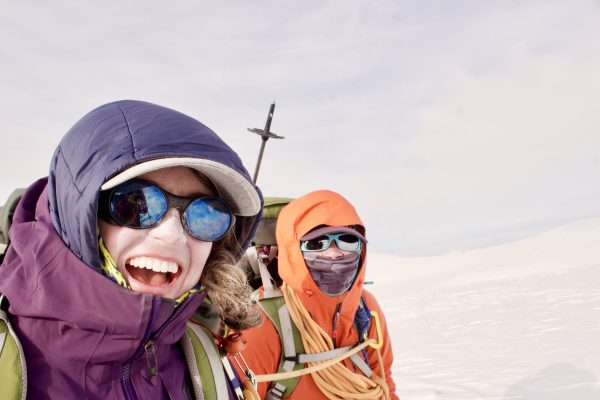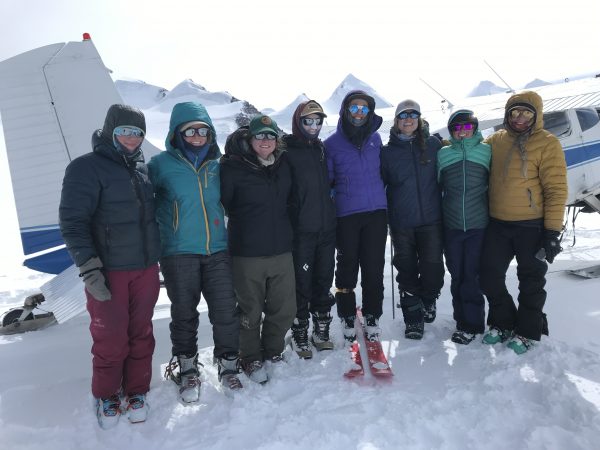
In mountaineering, far more men than women make first ascents. But the number of women who notch first ascents is growing.
Now a group of young women in Alaska is contributing to that change.
Last month, an all-female group of mountaineers flew high into the mountains of Wrangell-St. Elias National Park and Preserve. After nine days, they claimed two first ascents of unnamed peaks.
The group wants to grow a community of women in the mountains.
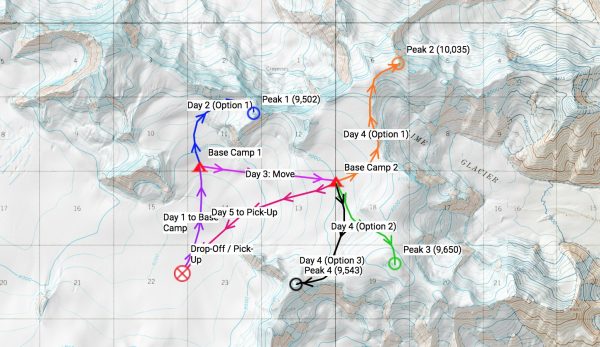
In mid-April, a plane dropped eight women off on the southeast fork of the Chisana Glacier. That’s way out in Eastern Interior Alaska, between McCarthy and Nebesna.
In the mountains, they faced stretches of storms, with strong winds and temperatures dipping below zero at times.
“We discovered that the storm trend was like three days storming and about one day clear skis,” climber Katie McCaffrey said. She’s 24 and grew up in Nome and Fairbanks. McCaffrey says, because of the weather, the team was limited in the number of days they could actually spend climbing.
“We only had about three days on our trip to get out of camp and try to summit things,” McCaffrey said.
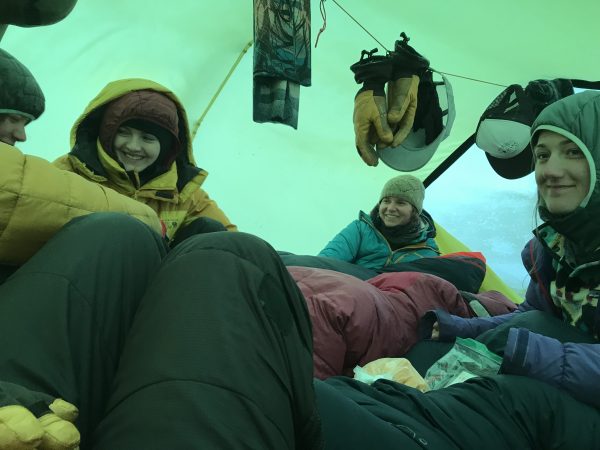
The team was entirely women, including Mary Gianotti. She’s 27 and originally from Juneau. A few years ago, Gianotti reached out to some of her female mountaineering friends. In 2018, they attempted to ski the Stikine Icefield.
“I just never get the opportunity to just be with women,” Gianotti said. “Usually it’s just you and a sea of dudes. And I just thought it would be really nice to have that experience and see what that was like.”
Gianotti says there are certain things about climbing with other women that she hasn’t experienced with the male dominated groups she’s gone out with.
“It felt really nice to just have space to be like ‘I am terrified right now, I’m really scared.’ And have people validate those feelings,” Gianotti said. “And I feel like sometimes in other climbing situations I’ve been in I’ve had to hide that, because it would be showing a weakness.”
Several obstacles prevented them from completing the Stikine expedition. But the group solidified. They go by the name Alaska Mountain Women. And this year, they took on the Wrangells, claiming first ascents on two peaks, both just under 10,000 ft.
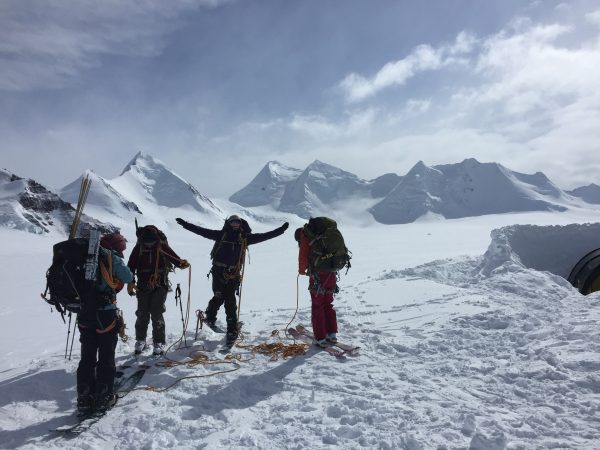
“We knew for sure they were the first all-female first ascents. But then it was pretty powerful to come to the realization that it was first ascents,” Gianotti said.
Finding out whether a certain peak has already been climbed is not always easy.
The Wrangell-St. Elias Park doesn’t keep track of who’s climbing what within the park. The American Alpine Club does have a database of recorded first ascents throughout the country.
Gianotti says the team did a lot of research, looking at trip reports, determining what has been surveyed, and which peaks are named.
Steve Gruhn is somewhat of an Alaska mountaineering historian. He’s currently the editor of the Alaska Mountaineering Club’s newsletter, Scree. And, for more than 20 years, he’s been documenting the earliest recorded ascents of as many peaks in Alaska as he can.
Gruhn keeps his own database, using information from climbing and mountaineering journals, magazines and blogs.
Gruhn says he doesn’t keep track of every single peak in Alaska. So, he says it’s hard for him to say definitively that these were first ascents. But, he doesn’t have a record of anyone visiting these summits before.
What Gruhn does know, is that historically, this area has not been well-climbed.
“This is not a popular area. So it’s intriguing that they went in there. They’re probably the third or fourth party I know of that went in there in recorded history. So it’s pretty virgin territory,” Gruhn said.
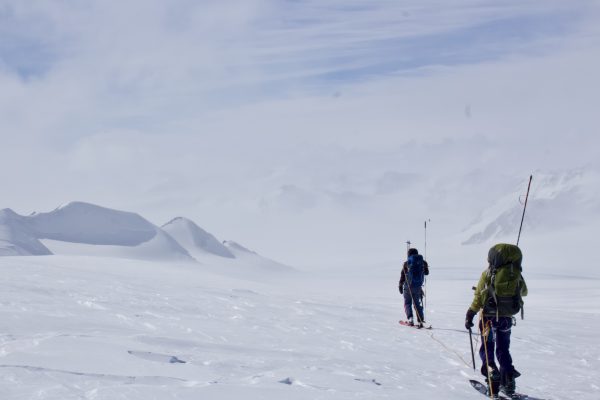
He says, coincidentally, there were recent reports of climbers sumitting peaks in the same area.
Gianotti and McCaffrey want to continue to make the outdoors more accessible for female climbers. McCaffrey says that’s a big part of what these trips are all about.
“This trip, this ongoing team effort is an effort try to engage more women in the outdoors and share with the community that it’s possible for us to do these trips,” McCaffrey said.
Beyond the physical act of climbing, Gianotti says trips like this one demand kindness, selflessness, a healthy lifestyle and tolerance for some level suffering.
Gianotti and McCaffrey are just two of eight women on this trip. It also included Auri Clark and Kit Cunningham from Juneau, a climber from Bellingham, Wash., Ashley Klassen from Telleride, Colo., Casey Patten from Park City, Utah, and Sophia Walling-Bell from Fairbanks.
